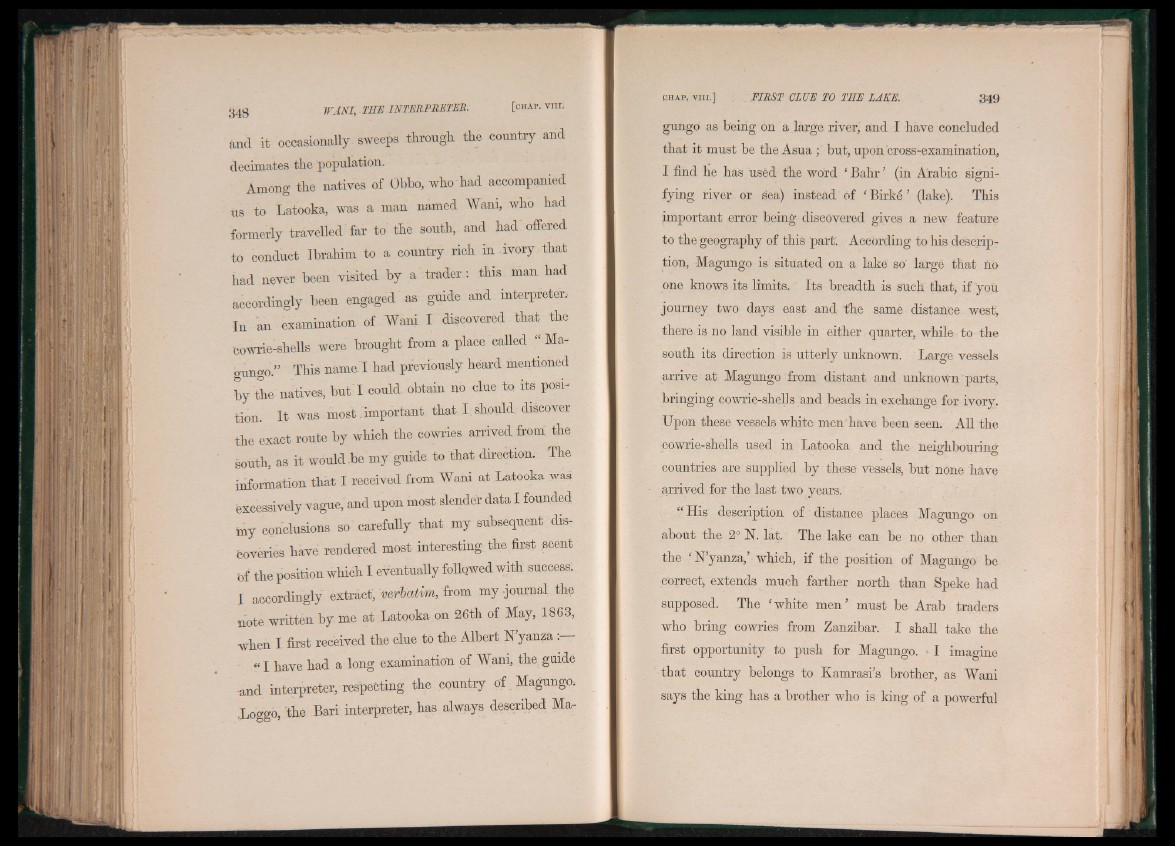
and it occasionally sweeps through the country and
decimates the population.
Among the natives of Obbo, who had accompanied
us to Latooka, was a man named Wani, who had
formerly travelled far to the south, and had offered
to conduct Ibrahim to a country rich in ivory that
had never been visited by a trader: this man had
accordingly been engaged as guide and interpreter;
In a n examination of Wani I discovered that the
cowrie-shells were brought from a place called “ Ma-
gungo.” This name! had previously heard mentioned
by the natives, but I could obtain no clue to its position.
I t was most important, that I. should, discover
the exact route by which the cowries arrived from the
south, as it would.be my guide to that direction. The
information that I received from Warn at Latooka was
excessively vague, and upon most slender data I founded
my conclusions so carefully that my subsequent discoveries
have, rendered most interesting; the first .scent
Of the position which I eventually follqwed with success'.
I accordingly extract, verbatim, from my -journal the
note written by me at Latooka on 26th of May, 1863,
when I first received the clue to the Albert N’yanza:—
“ I have had a long examination of Wani, the guide
•and interpreter, respecting the country of Magungo.
Loggd, the Bari interpreter, has always described Magungo'
as being on a .large river, and I have concluded
that it must be the Asua ; but, upon cross-examination,
I find he has used the word f Bahr \ (in Arabic signifying
river or sea) instead of * Birke ’ (lake). This
important error being discovered gives a new feature
to the geography of this part; According to his description,
Magungo is situated on a lake so large that no
one knows its limits. Its breadth is such that, if you
journey two days east and the same distance west,
there is no land visible in either quarter, while to the
south its direction is utterly unknown. Large vessels
arrive at Magungo from distant and unknown parts,
bringing cowrie-shells and beads in exchange for ivory.
Upon these vessels white menhave been seen. All the
cowrie-shells used in Latooka and the neighbouring
countries are supplied by these vessels, but none have
arrived for the last two years.
“ His description of distance places Magungo on
about the 2° N. lat. The lake can be no other than
the ‘Nyanza, which, if the position of Magungo be
correct, extends much farther north than Speke had
supposed. The ‘white men’ must be Arab traders
who bring cowries from Zanzibar. I shall take the
first opportunity to push for Magungo. ■ I imagine
that country belongs to Kamrasi’s brother, as Wani
says the king has a brother who is king of a powerful